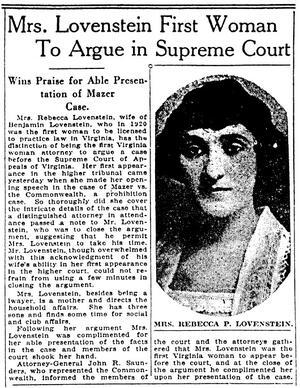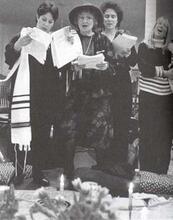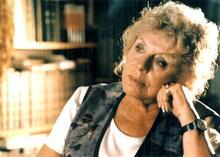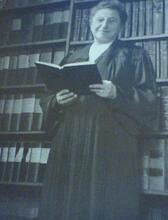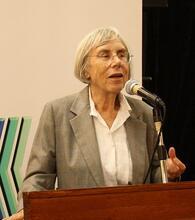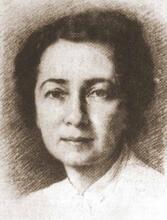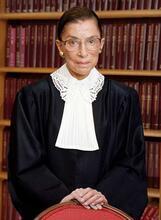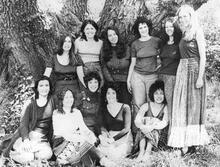Rebecca Pearl Lovenstein
In 1920, Rebecca Pearl Lovenstein became the first woman lawyer allowed to practice in Virginia. She went on to create a state bar association for women. From 1917 to 1920, Rebecca was a housewife by day and law student by night, finally being admitted to the Virginia bar in 1920, after the passage of the Nineteenth Amendment. She began practicing out of a basement office in her house, taking over her husband’s practice in 1923 when he became ill. The couple worked together for several years, since her husband Benjamin was able to see clients but not practice in court, and Rebecca tended him until his death in 1956, continuing to practice law herself until Alzheimer’s forced her into retirement.
Background
In few states did the struggle for women’s right to practice law on original jurisdiction take longer than in Virginia. The effort lasted from 1890 until June 1920 and required a change in the state bar admission statutes. Rebecca Lovenstein, who had campaigned for the statutory change, was the first woman admitted to practice in the state. She took the oath in Richmond on June 28, 1920. Rebecca Pearl Greenberg Lovenstein was the third Jewish woman to open a state bar for women.
Born in Vilna, Russia, on May 25, 1888, she was the third child in a family of four daughters and two sons born to Moses S. and Deborah (Dora) Greenberg. The youngest son, Henry Clay Greenberg, became one of the most honored justices of the New York State Supreme Court. Moses Greenberg, a surveyor, settled in Durham, North Carolina, where he opened a wholesale grocery. In the 1890s, he brought his family to the United States.
After public schooling in Durham, Rebecca attended Duke University for two years. Her mother, in poor health, wanted her daughter near her. Moses Greenberg hired tutors so that she could continue her education while caring for her mother.
Benjamin Lovenstein, born in Philadelphia in 1883, was studying law in Charlottesville, Virginia, and selling typewriters to earn tuition. On a trip through Durham, he met Rebecca. They were married on July 25, 1907. Admitted to the North Carolina bar, Benjamin Lovenstein was a highly successful trial lawyer in Durham. The Lovensteins had two sons, Meno (b. 1910), and Irving (b. 1911). After Benjamin suffered an overwhelming financial loss in a real estate venture, his family in Virginia asked him to move to Richmond. There, Rebecca gave birth to another son, Harold, in 1915. They were members of Temple Beth-El.
Becoming a Lawyer
Beginning in 1917, Rebecca Lovenstein tried, with little success, to obtain a legal education. Law schools were closed to women and enabling legislation had not yet been passed. Interestingly, woman suffrage associations did not support her. The dislocations resulting from World War I made it possible for her to attend law school at night while taking care of her children during the day. In 1920, the Nineteenth Amendment was passed, paving the way for legislation allowing women to become lawyers.
After being admitted to the bar, Lovenstein opened an office in her basement. In 1923, when her husband developed a kidney condition, she took over his office and cared for him until his death in 1956. Benjamin still maintained contact with clients, but trial practice was impossible for him. The Lovensteins practiced together for some years.
Later Life
In 1934, the Lovensteins endured tragedy when their second son, Irving, committed suicide after losing a young woman he loved to another man. Meno became a professor of economics at Ohio State University and later at the University of Miami. Harold moved to New York City to work in publishing and was for a time assistant editor of American Weekly.
Lovenstein’s strong personality, gregarious nature, and love of her profession sustained her through good and bad years. In the late 1960s, she slipped into the lost world of Alzheimer’s disease. She died on February 10, 1971, in a New York nursing home, watched over by her son Harold. Funeral services were held in Richmond, Virginia, and she is buried in Beth-El Cemetery.
Green, Jean. Interview by author, NYC, September 11, 1996.
Lovenstein, Rebecca. Interview by author, Richmond, Virginia, December 1959.
Richmond Times-Dispatch, January 8, 1925, and February 12, 1971.
Thomas, Dorothy. Women, the Bench and the Bar (forthcoming).

